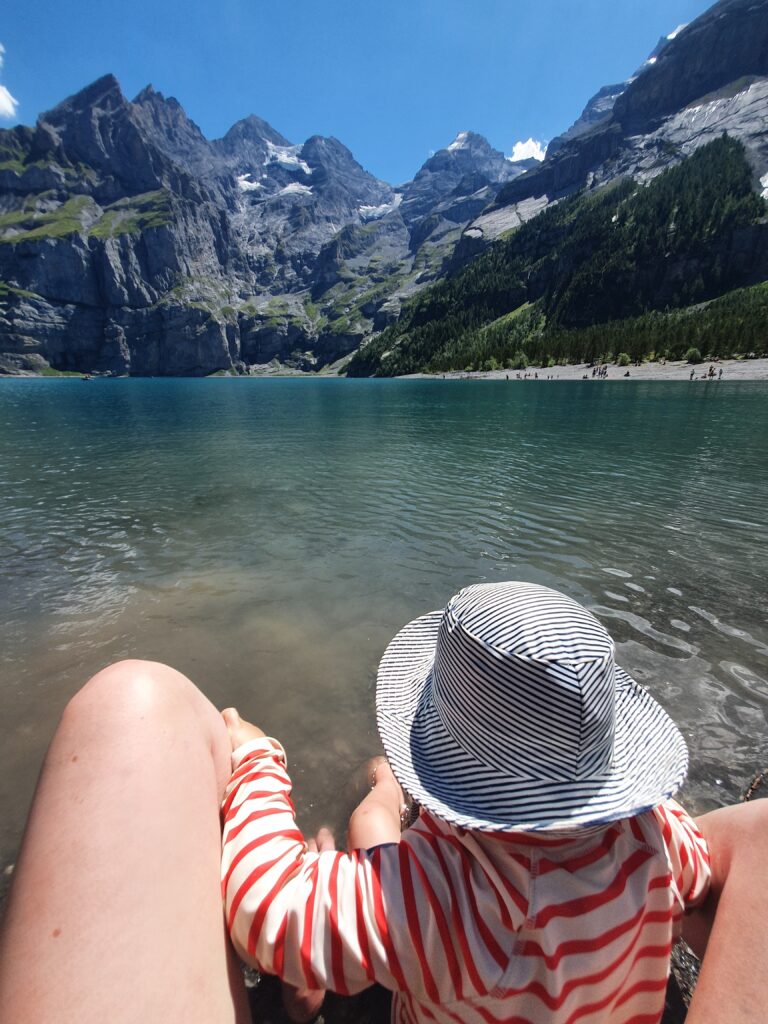“Please stop, you’re hurting me. Please stop, you’re hurting me. Please stop, you are hurting me”. I say these words over and over, tears silently leaking down my face. I try to prise his fingers off but I just can’t release his iron-clad grip. He bangs his forehead against mine repeatedly. Thud. Thud. Thud. I know that if I make a sound that shows I’m in pain, it will only make things worse. Begging, bribing, bargaining, nothing works. When I finally wrestle free, I can see the fistfuls of red hair hanging down in shame in his hands. I pick myself up off the kitchen floor, wipe my eyes on the backs of my arms and continue making dinner. You would be forgiven for suspecting that I am the victim of domestic violence, but I’m not, at least not in the traditional sense. The person hitting, pinching, headbutting, slapping me and pulling out handfuls of my hair on a regular basis is, in fact, my three year old. I’d like to think that if I were the victim of domestic violence, I would pack my bags and leave pretty sharpish, however, that’s not an option when it’s your own child.
Variations of the kitchen floor scenario play out several times a day. They are increasing in frequency and ferocity. On a few occasions another adult has had to step in to physically remove my son from me because I just can’t unclench those fists from my hair. The more I react, the harder those fists tighten. Not showing emotion or that you are in pain while being physically attacked by someone, goes against all human instincts. “Just ignore it”. “Don’t get close to him”. Yeah, right. How do you change a nappy, dress your child or cuddle them without getting close? How do you carry them up steps and hold them back from danger? You can’t hold your child at arm’s length when they need you for almost all basic daily tasks. It breaks my heart to have to bury my motherly instincts when he’s in pain as pain triggers aggression. I have to hold his hands down to stop them wildly seeking out hair and steer his jaws away from my shoulder when comforting him. I am completely unprepared for this part of rare parenting. What page of What to Expect When You’re Expecting was this on? I must have missed that part.

Twice on this rare journey have I thought to myself it’ll be different for us. The first time was when I was deep down the internet rabbit hole reading a report and pausing, my heart sinking at the stark statistics on children who have infantile spasms: “10 to 20% will have normal mental function and some others may be only mildly impaired”. We were going to be in that 10-20%, I thought, I was absolutely convinced. The countless threads of ‘success stories’ on infantile spasms Facebook groups were proof. When my son was diagnosed with DESSH, frantic googling was brought to a halt with two words: BEHAVIOURAL PROBLEMS. I hestitated then reasoned that all children have behavioural problems to some extent, especially toddlers. We weren’t going to be badly affected. As I write this, it the eve of the first anniversary of my son’s rare disease diagnosis and I can honestly say that it’s beginning to dawn on me that this may just be the start of our journey with behavioural problems. When speaking to parents of older DESSH kids, there are mixed responses about the future: for some the behavioural issues have mellowed in later years, for others they have ramped up. One thing I know for sure about the future is that I know nothing at all.
I can imagine an autistic adult reading this might feel upset. Perhaps they feel like this is violating my son’s privacy. I get it, I am. But I don’t write about this in order to humiliate or shame my child. Neither do I write about this because I want attention or for people to feel sorry for me. I want to share what life is like for a family raising a child who is missing information in every cell of his body leaving him unable to communicate with words so he desperately tries to get his message across in whatever means possible. I don’t blame him. It’s not his fault.
My husband says my writing is dark and dramatic and I don’t mean it to be. I just want to be honest. I want to write about it all: the good, the bad and the ugly. I named this blog A Very Rare Adventure because adventures are just that: good, bad and even ugly at times. It’s never all good and it’s never all bad or ugly either. Adventures are full of high highs and low lows and everything inbetween. This might not be the life I expected but it is the life I lead and one that I want to share in the hopes that there’s just one person out there who feels a little more informed or a little less lonely on their own rare adventure.
